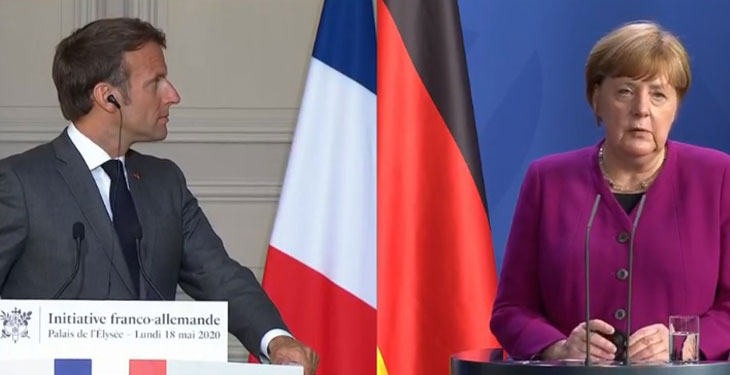French President Emmanuel Macron and German Chancellor Angela Merkel have proposed a joint issuance of debt securities by the EU to finance the European recovery package. This bold initiative, characterized by many commentators as a Hamilton moment, was quickly supported by the EC, ECB and Spain, but there is still a long way to go to convince the Nordics, says Christopher Dembik, director of macro analysis, Saxo Bank.
Ahead of the EU meeting scheduled for May 27, the Franco-German couple announced their post-covid plan which includes among the main proposals an expenditure from the EU budget of 500 billion euros, financed by what is actually federal emissions (for the period 2021-27), a new EU health strategy based on research and development and joint actions, accelerating the EU Green Deal by deepening the emissions trading system (eg minimum price for CO2 and greater incentives for private sector investment in decarbonisation) and a strong call for economic sovereignty, which suggests, in particular, the implementation of a new industrial strategy and the strengthening of the single market.
The EUR 500 billion fund will not be based on loans, but will be a direct expense, so the funds are not considered a debt of the Member State – this is one of the preconditions stipulated by Italy in recent weeks.
There will be additional business financing through EIB loans of up to EUR 200 billion and an EC Unemployment Support Scheme (SURE) of up to EUR 100 billion.
“This is not the first time the EU has planned a joint issuance of debt securities. In the past, the EU has issued debt securities for macro-financial assistance or as support for balancing payments, but with much smaller amounts … However, there is still a long way to go before the EUR 500 billion spending fund will become a reality. The main question is whether France and Germany are ready to make a full commitment and convince other Member States, especially those in the Frugals group, that this is the right decision. It is an illusion to believe that an agreement can be reached by 27 May, when the next EU meeting is scheduled, or even in early June. The unanimity rule, which should have been replaced by a majority rule a long time ago, implies that a compromise can only be reached after intense and lengthy negotiations, and we cannot rule out that a minority of one or two countries is blocking it to jeopardize the whole process at the last moment,” says Dembik.
